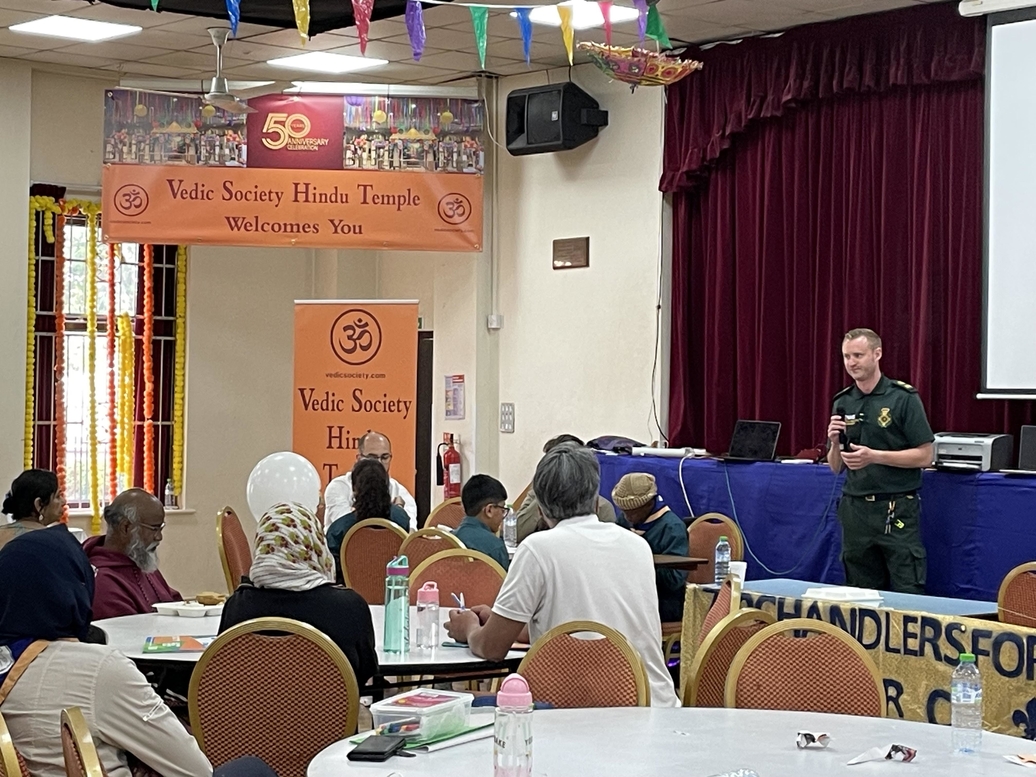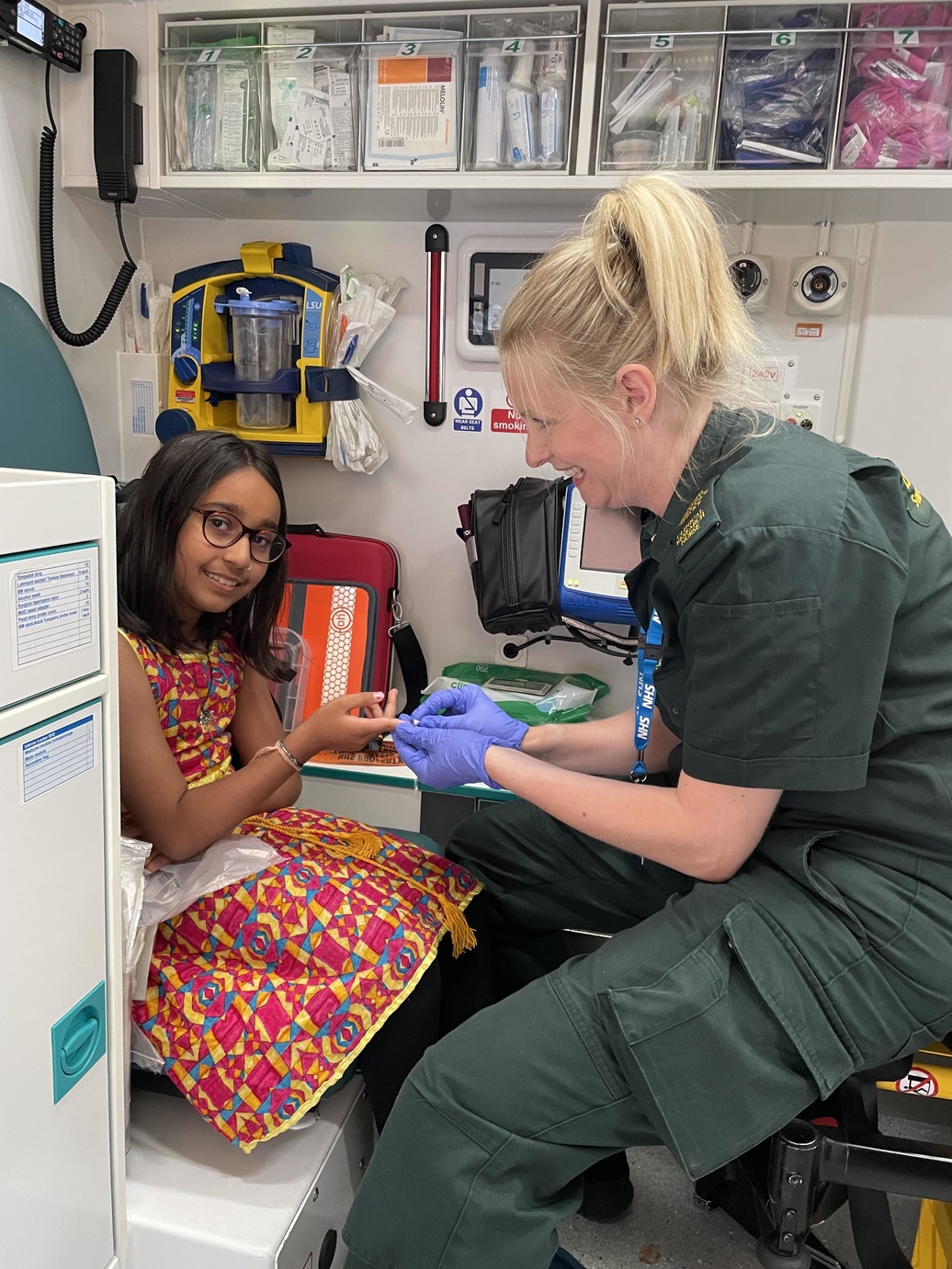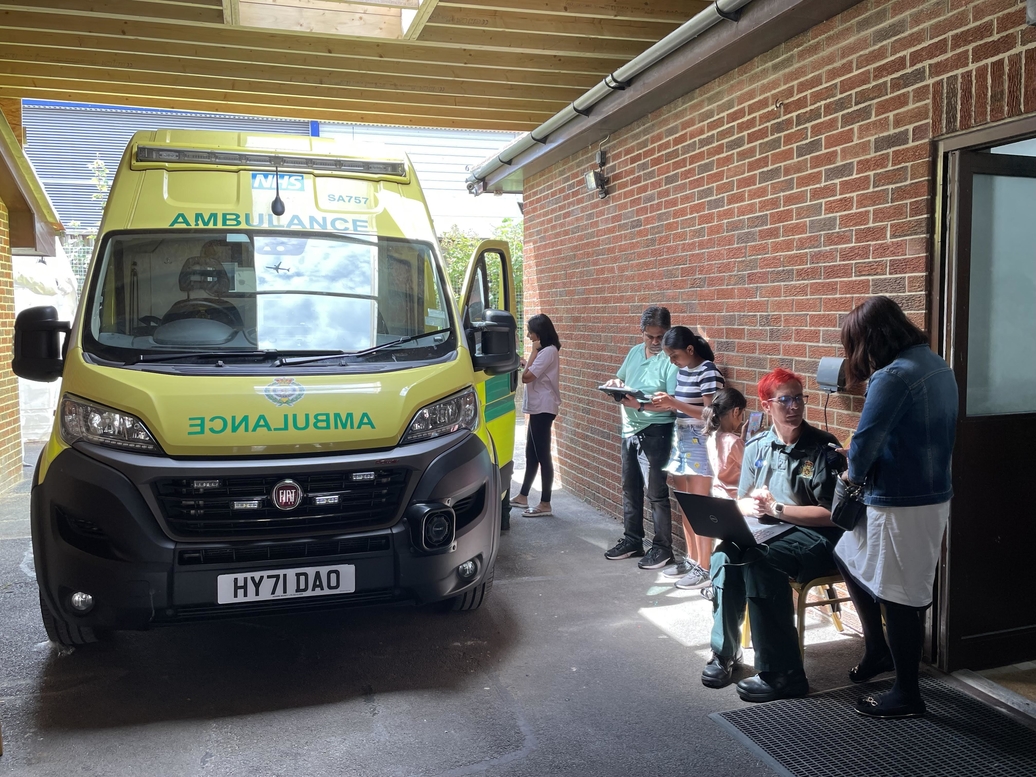Ambulance service screens children for diabetes in UK first
- 11 July 2023
- 3 min read
South Central Ambulance Service (SCAS), supported by the National institute for Health and Social Care Research (NIHR) is the first ambulance service in the country to screen children for type 1 diabetes in a landmark study.
Research paramedics and nurses will carry out testing among those aged 3 to 13 in GP practices, schools and community centres across Berkshire, Oxfordshire, Hampshire and Buckinghamshire.
It is part of a major national research project - EarLy Surveillance for Autoimmune Diabetes (ELSA) - designed to assess children’s risk of developing type 1 diabetes at the earliest possible stage.
The very first ELSA screening event in the Wessex region took place at a Wellbeing event at the Vedic Society Hindu Temple in Southampton, on Sunday 2 July.

Those identified as high risk during the study and their families will be offered support and education - including information on symptoms and management - to help prepare them for the diagnosis.
They will also be given the opportunity to be followed up in the long-term to enable closer monitoring and to potentially start insulin treatment sooner.
In addition, they will be given access to clinical trials of the newest treatments which could prevent or delay the condition.
Around 400,000 people in the UK - including around 29,000 children - are thought to have type 1 diabetes, a lifelong autoimmune condition.
It is caused by the immune system attacking cells in the pancreas that produce the hormone insulin. This prevents insulin being created and causes blood sugar levels to rise, potentially resulting in life-threatening complications.
Rapid diagnosis is essential to avoid this, but more than a quarter of children in the UK are not diagnosed with type 1 diabetes until they are in diabetic ketoacidosis (DKA) which requires urgent hospital treatment.
DKA is a serious condition which sees harmful substances known as ketones build up and released when the body starts to run of out of insulin and break down fat for energy instead.
The study, funded by Diabetes UK and the Juvenile Diabetes Research Foundation (JDRF), will assess children’s risk of type 1 diabetes through a combination of finger prick and venous blood tests.

The team, led by researchers at the University of Birmingham, will test for markers in the blood called autoantibodies - tools used by the immune system to earmark insulin-producing cells for destruction.
Autoantibodies are associated with the development of type 1 diabetes and can appear in the blood years, or sometimes decades, before people begin to experience any symptoms.
Martina Brown, study Principal Investigator at SCAS, said: “We want to ensure this type 1 diabetes screening programme study is accessible to all and utilising the agile workforce of research paramedics and nurses is key to making this happen.
“We are delighted to be the first ambulance trust to use our paramedics and nurses for such a landmark project and will be screening children in community settings including general practices, schools and community centres.
“Screening for type 1 diabetes is not a standard practice in the NHS at present so this really is a fantastic opportunity for everyone to be involved - and could form the basis for a national screening programme.”
She added: “The benefit is clear in terms of identifying those at risk earlier and teaching children and parents about recognising the acute symptoms and being prepared for emergencies.
“They will understand how to respond to these situations effectively as a result and will receive access to further clinical trials to tackle the disease which include new treatments to prevent or delay the condition.”
Parth Narendran, professor of diabetes medicine at the University of Birmingham, said: “As general population screening programmes for type 1 diabetes emerge around the world, we need to explore how best to screen children here in the UK.
“We hope ELSA will lead to the roll-out of a type 1 diabetes early detection programme for children in the UK and encourage families with children at a suitable age to consider taking part.”
Anyone interested in finding out more or signing up can visit the study website www.elsadiabetes.nhs.uk.



